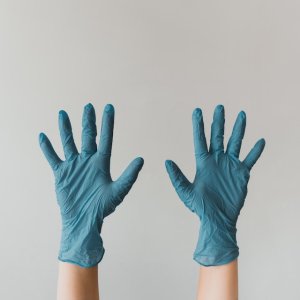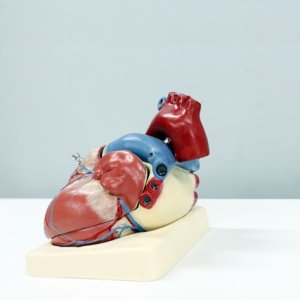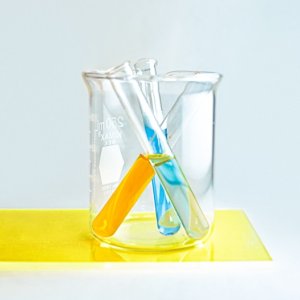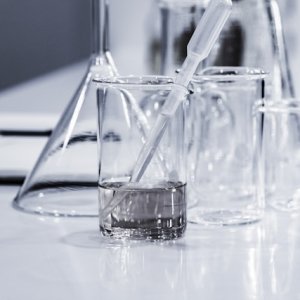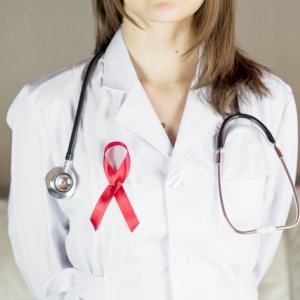Indian Giant Bets on Local Biosimilar Manufacturing

STORY INLINE POST
Q: What recent commercial achievements would you like to share as the most relevant Indian company according to IMS Health?
A: In 4Q14, we achieved 65 market authorizations on finished dosages for several customers. As an active pharmaceutical ingredients (API) supplier we interact with our customer’s development departments and now have 35 new market authorizations. Hetlabs has 91 market authorizations for molecules and 81 licenses.
We also submitted new fixed combinations to the Mexican Institute of Intellectual Property (IMPI) gazette and four of our patents for innovative molecules have been published, so we are submitting two more. We plan to launch these products in 2016 and expect revenues of at least US$10 million per molecule. We have one fixed combination product for erectile dysfunction and expect to position it in the top five. We also want to be ranked in the top five biggest companies for cardiovascular and central nervous system products in Mexico. In the specialty care business segment, we have submitted three more patents for antiretroviral (ARV) drugs, where we are the world leaders with a 30 percent market share. We expect to launch related products by 1Q16 in a joint venture with Vanquish Pharmaceuticals. We expect to achieve at least 15 percent of the ARV market share in the first year and 30 percent in the second year.
Q: What are the most relevant trends shaping the generics environment in Mexico?
A: Mexico has become one of the most interesting markets worldwide. The black market used to represent 30 percent of Mexico’s pharmaceutical market. It had a strong presence in remote areas that were not covered by any formal distributor. But now pharmaceutical companies and distributors are reaching those areas and along with a stronger COFEPRIS, they have weakened the black market. Moreover, the population is undergoing a cultural transformation in which patients are more informed and demand better services, while physicians evaluate the health benefits and risks of medications more carefully. People not only want to turn 80 years old but they want to do so with a good quality of life. Thus, multinational companies are aiding patients with their chronic illnesses. Regulations have become stricter and conducting bioequivalence studies for generics is not enough. Active pharmacovigilance is an essential requirement for generic producers to demonstrate their product’s safety. Mexico is starting to reap the benefits of all these efforts and I would say we have more opportunities than challenges. Balancing quality and price is perhaps the most important challenge for companies today. As the most successful Indian company we are committed to complying with all regulatory requirements and therefore we will only compete against those companies with the same level of quality and compliance.
Q: How have you developed your manufacturing site?
A: We acquired one of the best facilities and rebuilt it to be a high-specialty manufacturing site aimed at producing biosimilars and cancer drugs. We found the right partner in Mexico and we hold 90 percent of the company. We have established communication with the Subcommittee of Biotechnology Products at COFEPRIS and we presented the layouts for our biosimilar manufacturing site. In addition, we had a pre- meeting for the authorization of our first biosimilar and we are working closely with CONACYT and the State of Mexico’s Council for Science at Technology (COMECYT). We are committed to talent development in this facility. At launch we will have Indian people working on the technology transfer process and Mexican workers will join subsequently. Initially, this site will supply biosimilars to Latin America. Secondly, with the site meeting EMA requirements, we will export products to the US and Europe. As Mexico gains greater recognition among those countries exports will be easier from Mexico than from India. We are conducting preclinical studies in mice and monkeys in the US and clinical trials phase I, II, and III for biosimilars in Mexico. The characterization of biosimilars includes non-inferiority studies, knowledge of drug behavior in patients and risk management. In the short term we will begin phase I of a product in collaboration with UNAM.
Q: Why did you decide to invest in manufacturing in Mexico unlike other multinational companies divesting in this area?
A: Hetero Groups is confident that Mexico is a great place to do business and I think multinational companies are making a huge mistake. The country has a high level of technical expertise and educated professionals. Pharmaceutical manufacturing costs are as low as in India and Mexican workers are among the best in the world in terms of performance. I have seen top-level manufacturing sites being built in two years in Mexico, which is something that does not occur in the US, Europe or Russia. India can have this kind of development but not at the same level of technical performance. Economically speaking, Mexico has an inflation rate of 2.8 percent compared to other Latin American countries.
Q: How easy will it be for Hetlabs to tap into the biotechnology market in Mexico?
A: Mexican regulation is at the level of the EMA. However, Europe has several years of experience in this area while Mexico is just going through the learning curve. There are strong committees in the pharmaceutical and regulatory chambers pushing biotechnology forward. COFEPRIS wants more availability of biopharmaceuticals in the market so that more people have access to treatments, but to achieve this all stakeholders need to understand the business and regulatory environment of the products. Phase III and IV clinical trials have been conducted in Mexico for many years and companies are interested in conducting phases I and II. Biopharmaceuticals are much more complex than chemical drugs, not only in terms of manufacturing but also transportation since they need special care to remain stable. It takes three months to release the product for quality assurance when it arrives in Mexico. In this case, we are not providing a bioequivalence study but non-inferiority studies, which is the reason why they are called biosimilars because they are not identical to the innovator.
The first line of products we are introducing to Mexico under this venture are the monoclonal antibodies, and we are ensuring compliance with all of COFEPRIS requirements, which is why we have delayed product launch. The question is whether these products will be able to participate in the same tenders as innovators and how IMSS and ISSSTE are going to manage them. Now that rules are clear and transparent many companies are competing to be first in the market. Despite the government urgently needing low cost biosimilars it does not want to infringe patent issues or affect the revenues of multinational companies that have invested over the years. The market is completely aware of patent protection today and nobody wants to have a problem with intellectual property in Mexico.
Q: What steps will you take in order to ensure a leadership position in the biopharmaceutical market?
A: We will start commercializing biosimilars next year and we will prepare for the next tender. This means we need to obtain market authorizations soon, which is an ambitious but achievable goal. Failure to accomplish this would mean products have to be imported from India. As this country does not belong to any relevant trade agreement in the region we would be the last option. We will be ready for manufacturing in April or May 2016. The first batches will be ready for short and medium term stability tests, which will pave the way for market authorizations. We are conducting clinical trials aimed at collecting data over a six-month period.
The data will allow us to be ready for the market authorization submission. As the authorities have overseen the manufacturing and clinical development processes we expect to be the first to market oncology biosimilar drugs. We are also launching two generic oncologic drugs. We have a complete portfolio of molecules belonging to the tyrosine-kinase inhibitors (-tinib) category, such as imatinib and gefiniti, that are part of the latest generation of drugs. As their development and manufacturing is really complex there are only two or three producers. Bioequivalence studies for these products are very complex and expensive. The average cost of a bioequivalence study for the chemotherapy drug capecitabine is US$19,000 while for -tinib molecules it costs US$450,000. We are striving to make generics and biosimilars for top specialty care areas our focus.
Q: In what way is TPP going to transform the biotechnology landscape in Mexico?
A: TPP can bring many opportunities to the industry, and the biggest challenge is finding them. Since India is not included in NAFTA, European Trade Agreement, Latin American Trade Agreement, or TPP it will be challenging for Indian companies to remain competitive in terms of costs due to taxation. This supports our strategy of building and opening a manufacturing site in Mexico because having a direct presence in the country makes Hetlabs a Mexican company, and thus TPP will benefit us.










